I always need to have, in my drawers, a quick and easy way to assemble and prototype small synth modules.
I think this the most convenient way to build a simple module. You just use it as a standard stripboard PCB but with neat additions.
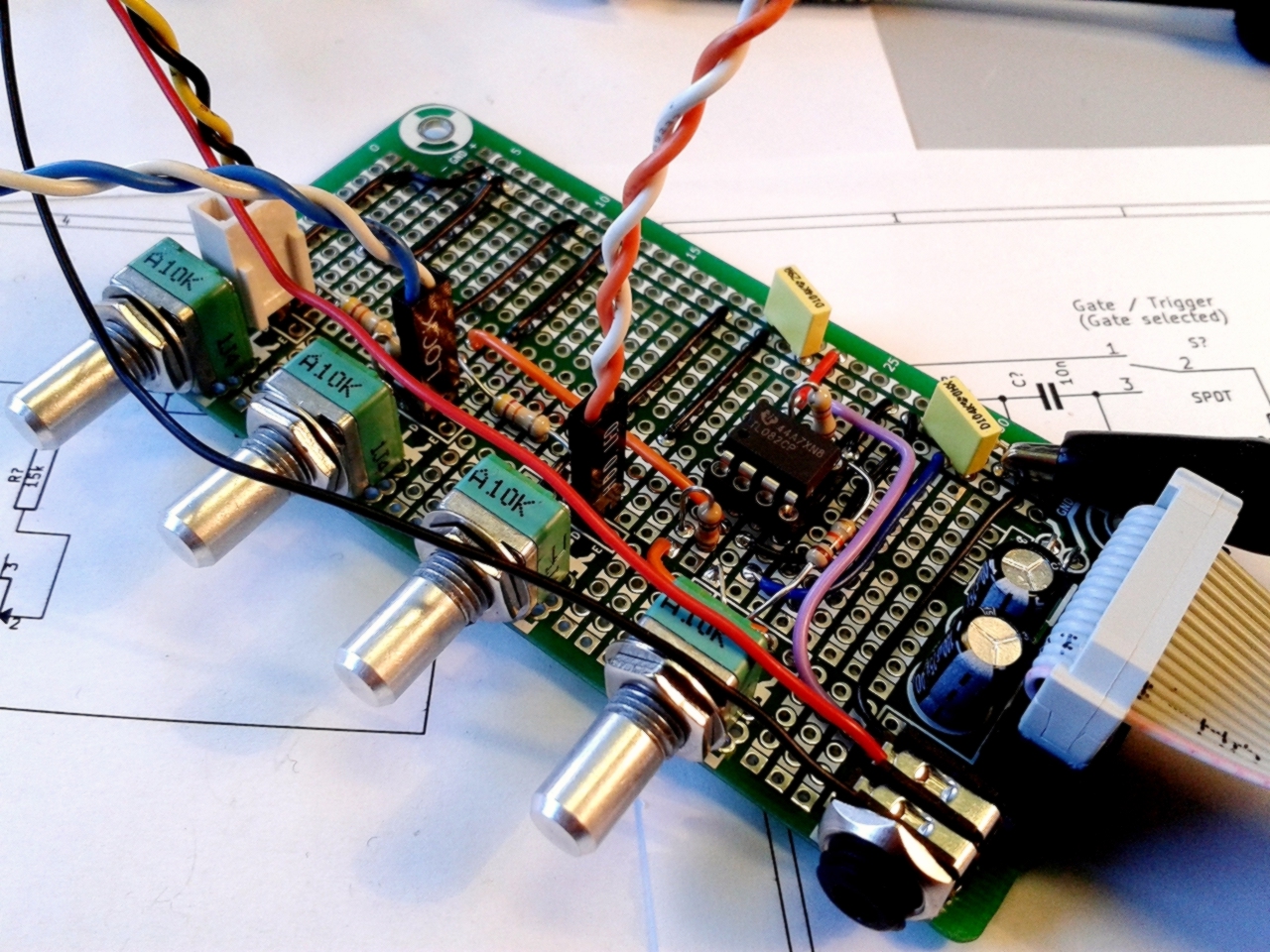
With the Eurorack power supply interface you can easily connect either a 16-pin or a 10-pin connector. The clear and detailed silkscreen labels indicate where the different voltages are located. You can also add 2 filtering capacitors and 2 protection diodes.
You can use up to 5 potentiometers or 5 Jack connectors. The potentiometers can be any of 9 or 16 mm types, Alpha PKN160 for example. The Jack connectors are Cliff mono style.
The layout is pretty simple: strips, strips, strips. More than 60 horizontal 4 and 5 pin strips. One long 30 pin strip per power supply rail and two for ground.
—
Version 1.0 was too simple in my opinion. A lot of wires had to be soldered from power rails and ground to strips. So I tried to improve things a bit and designed a 1.1 revision, which is, to be fairly honest, not as good as what I expected.
I took an idea from some other recent stripboards on the market: in addition to the classic rows of 4 or 5 2.54 mm pin pitch strips, I added, between each copper strip, a very thin X and Y mesh of copper traces. Those thin traces run from one side of the board to the other side. And, between each standard strip pad, there’s a kind of tiny “surface mount” pad. The goal is to short together the two pads with a solder blob.
This way, you can theorically connect a strip to an other strip, without a wire.
Here are the layout pictures:
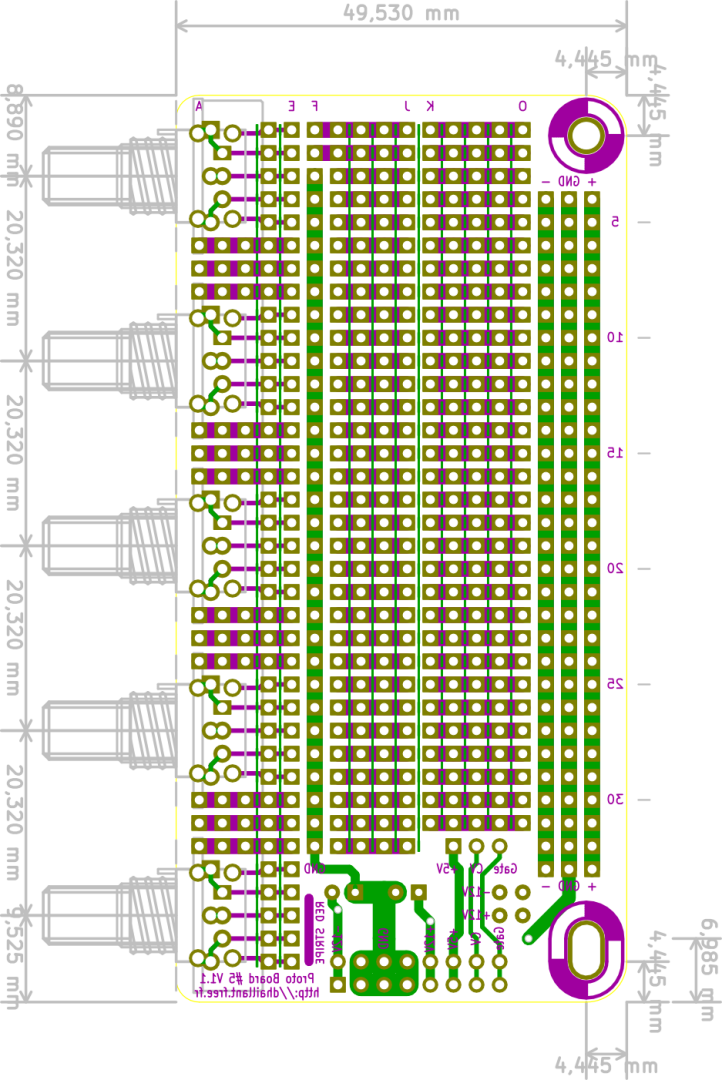
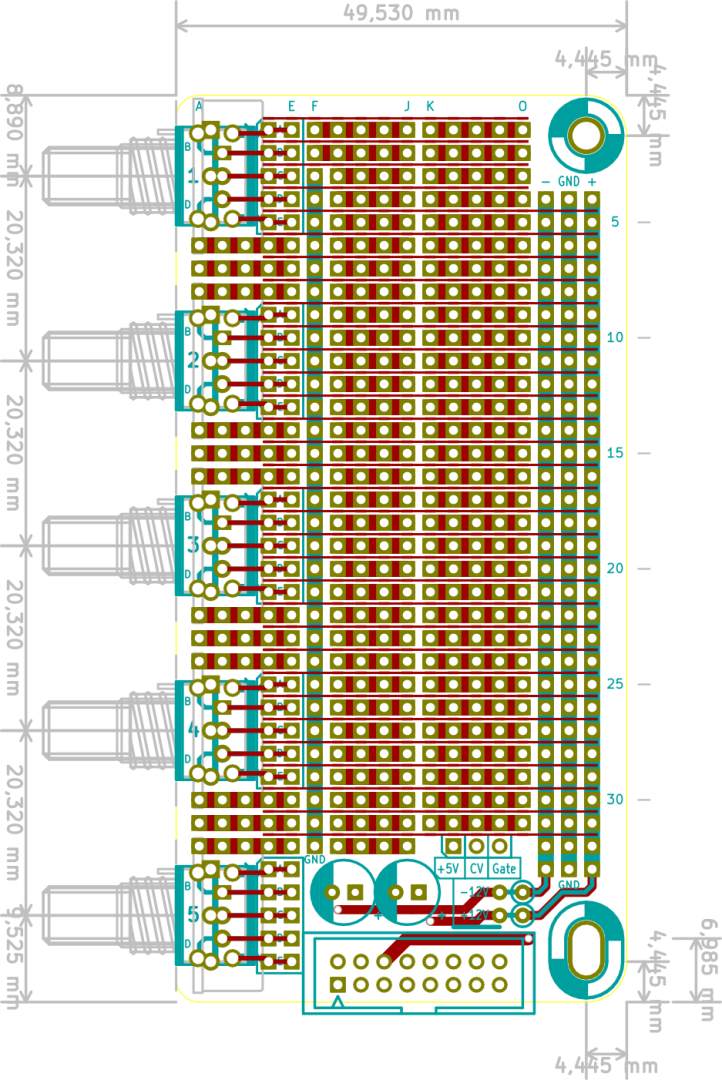
As you can see on this pictures, the top side thin traces are horizontal, while the bottom side thin traces are vertical.
The horizontal traces should let you interconnect the strips to the rails and the ground.
The vertical traces should allow you to interconnect the strips between them.
But… (“fail” music here)
Practically speaking, I tried to solder and short a standard pad with one of those tiny “surface mount” style pads, and… it’s almost impossible!
I don’t know if the PCB fab house, or I, did a nasty thing with the solder mask, if I completely underestimated the size of the pads or maybe the distance between the standard pads and the tiny pads… but, long story short, the small inter-strip mesh is unusable.
The standard 2.54 mm strips are totally functional, though.
And so, I finally decided to sell some of these stripboards on Tindie, as “B-stock” anyway.
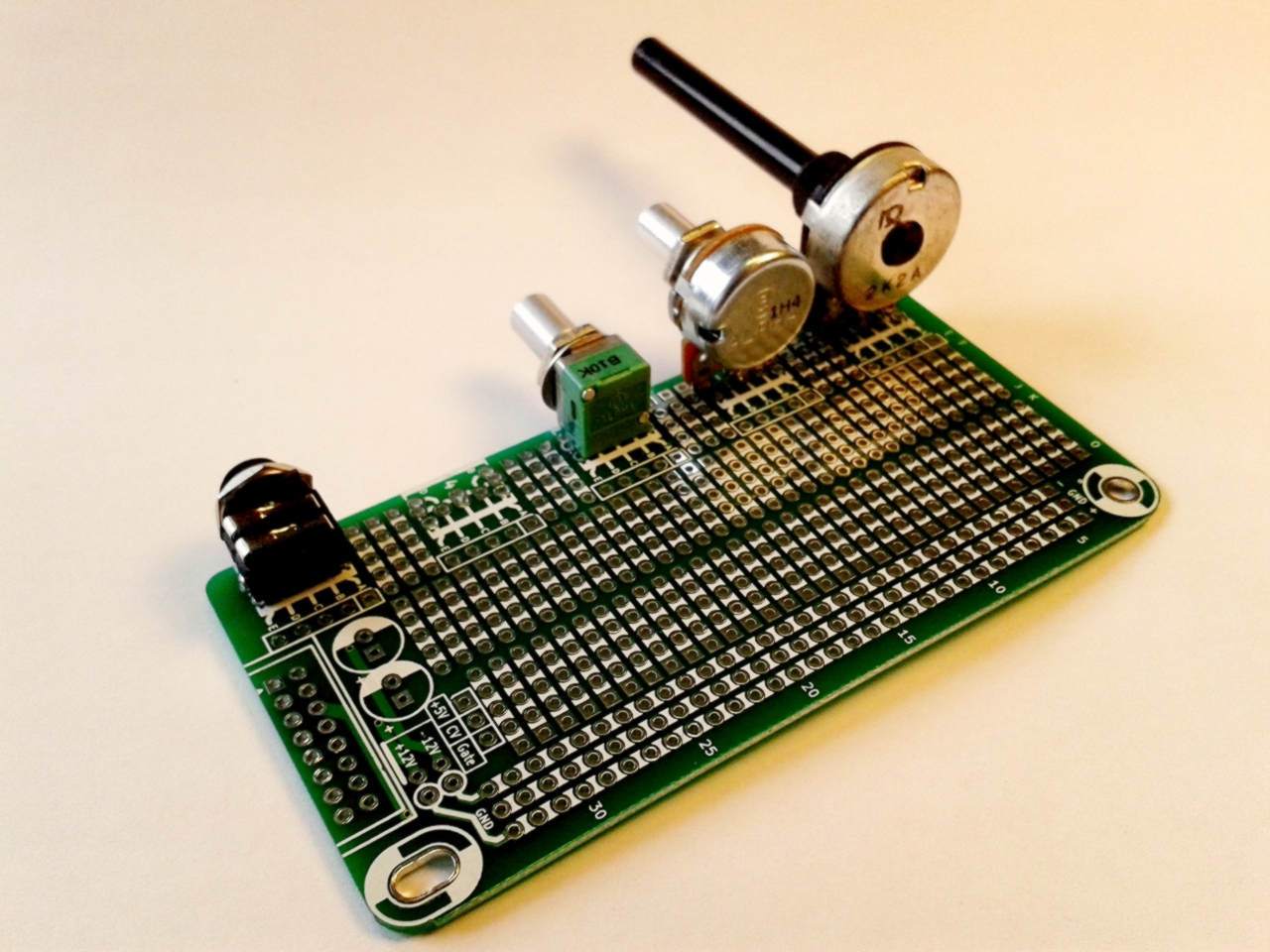
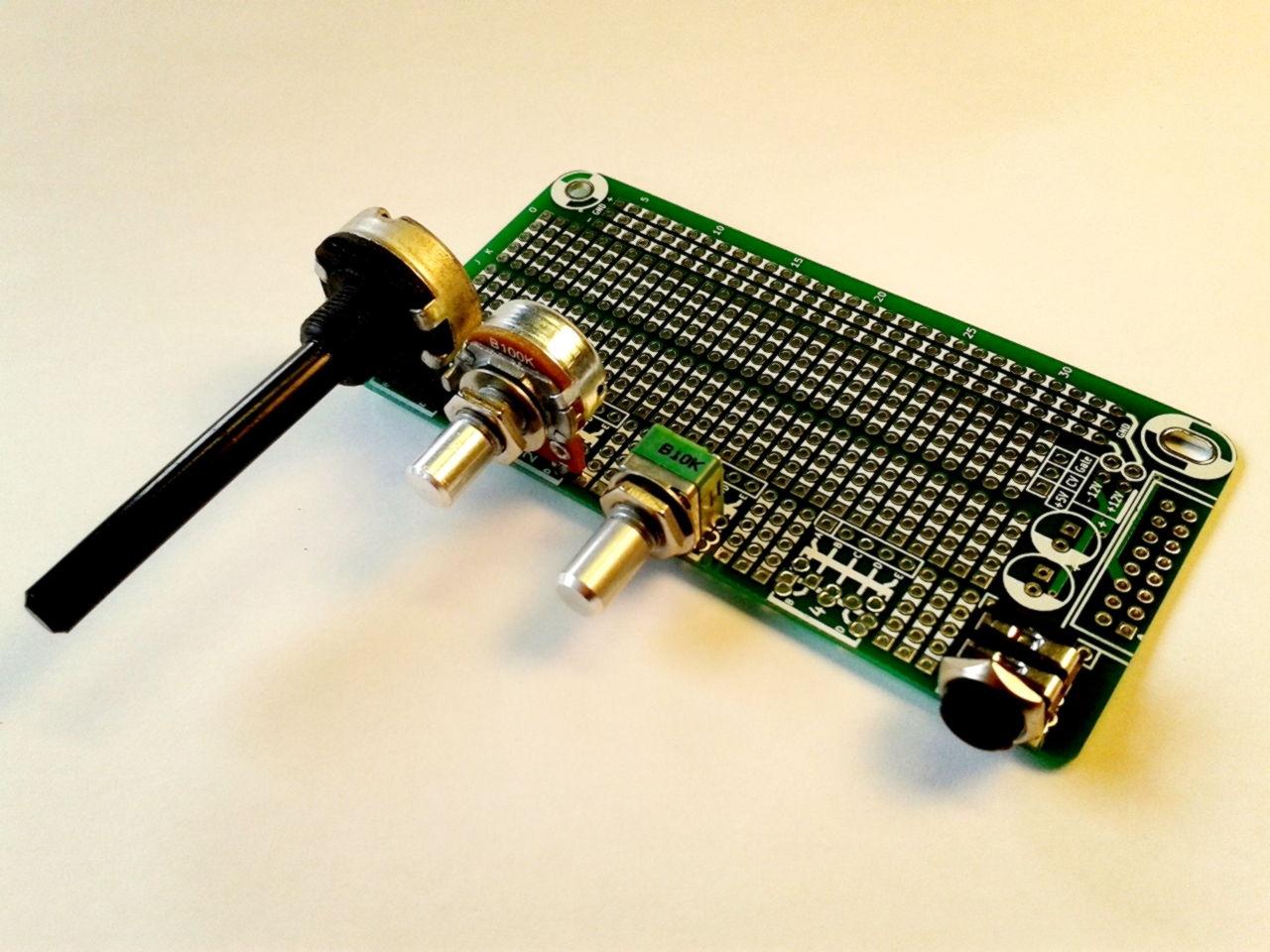

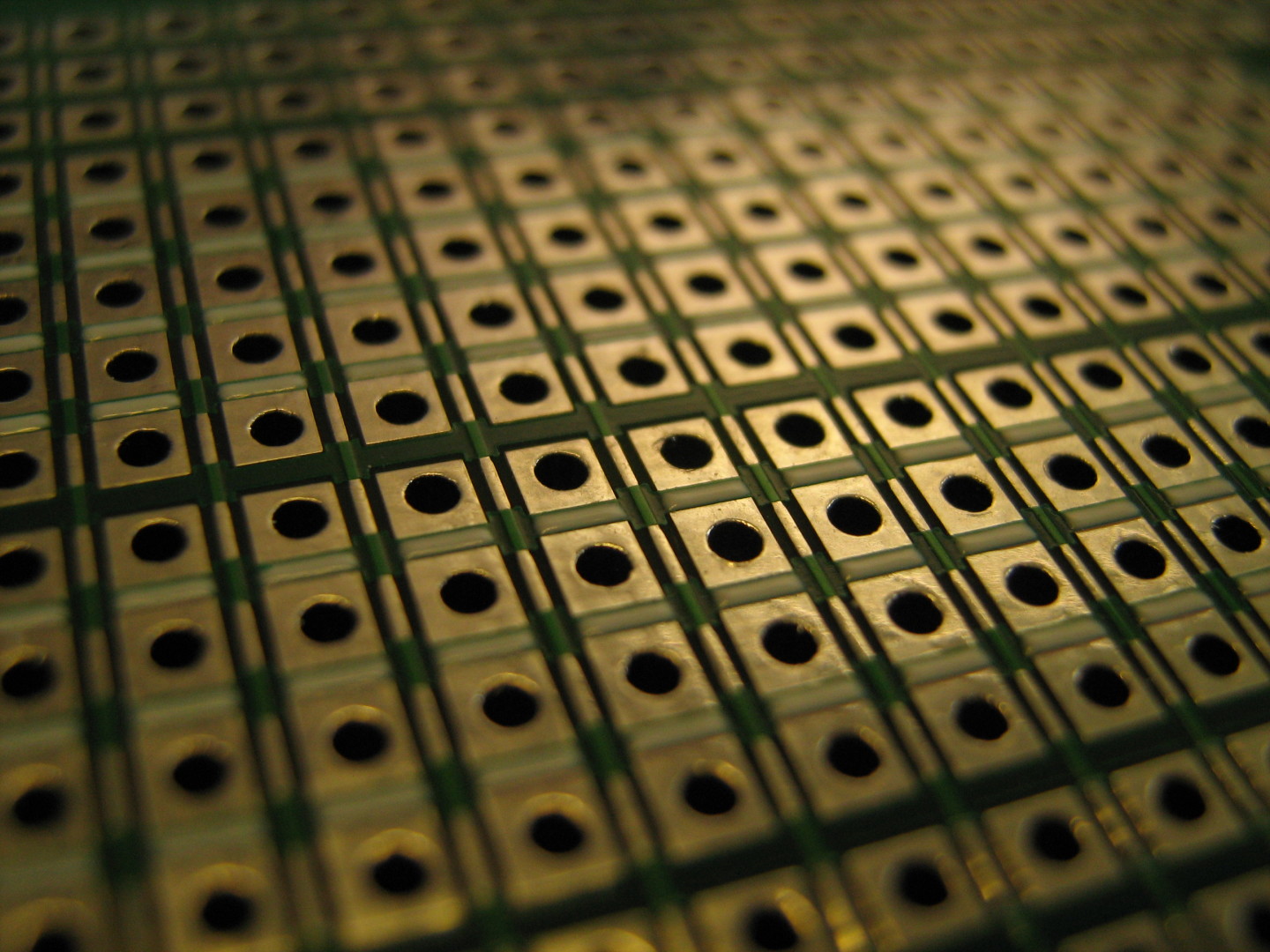
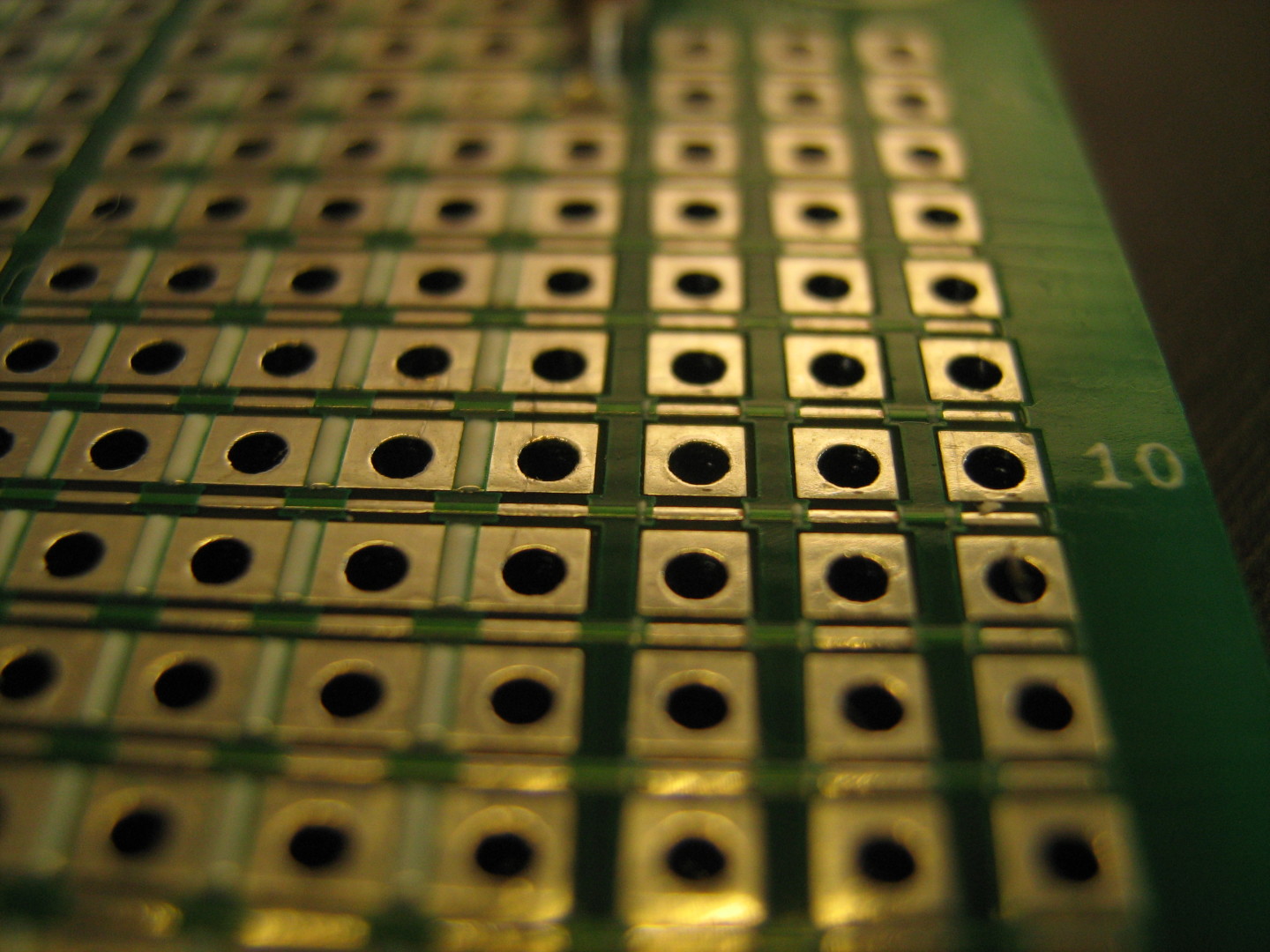
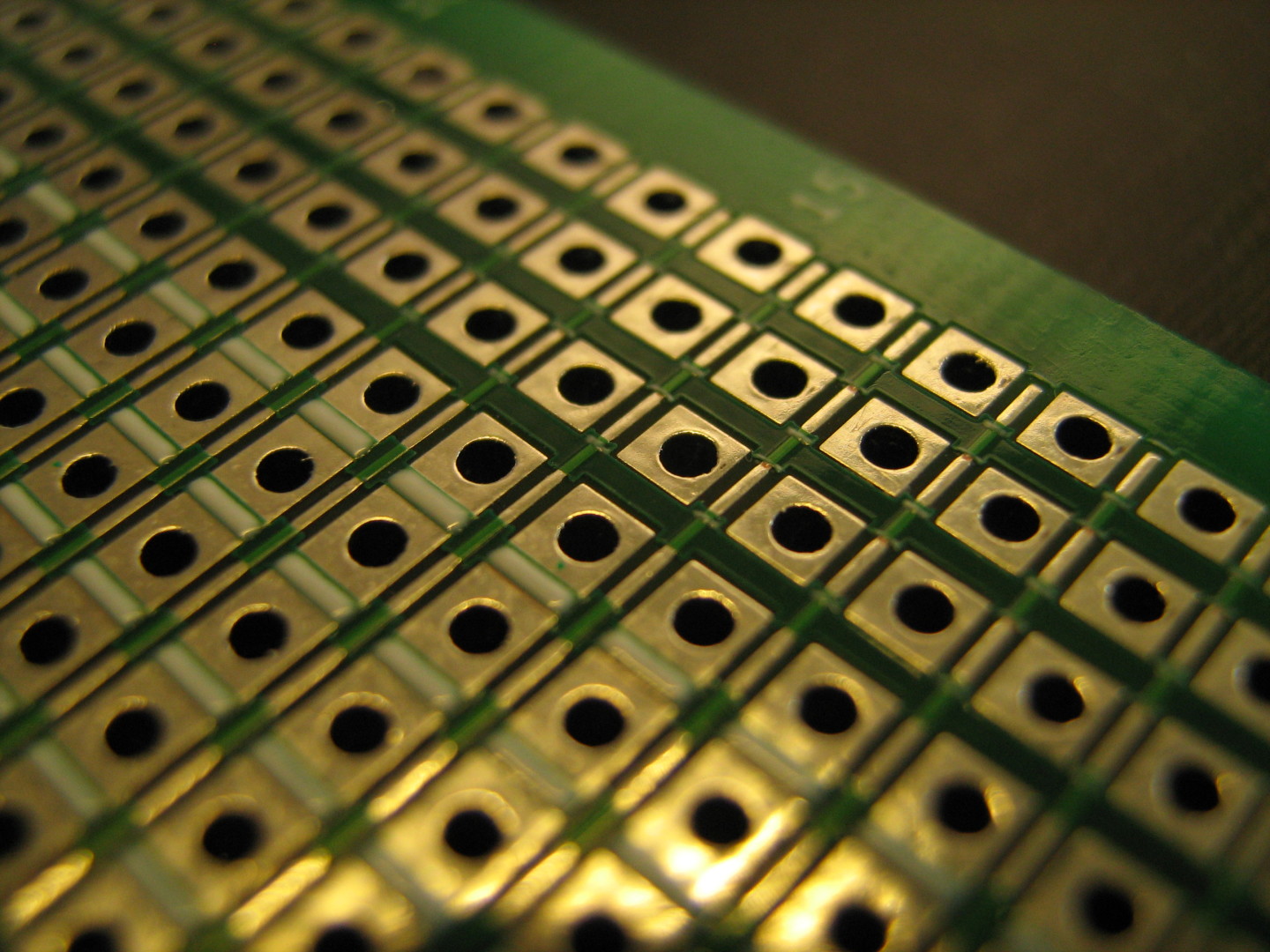
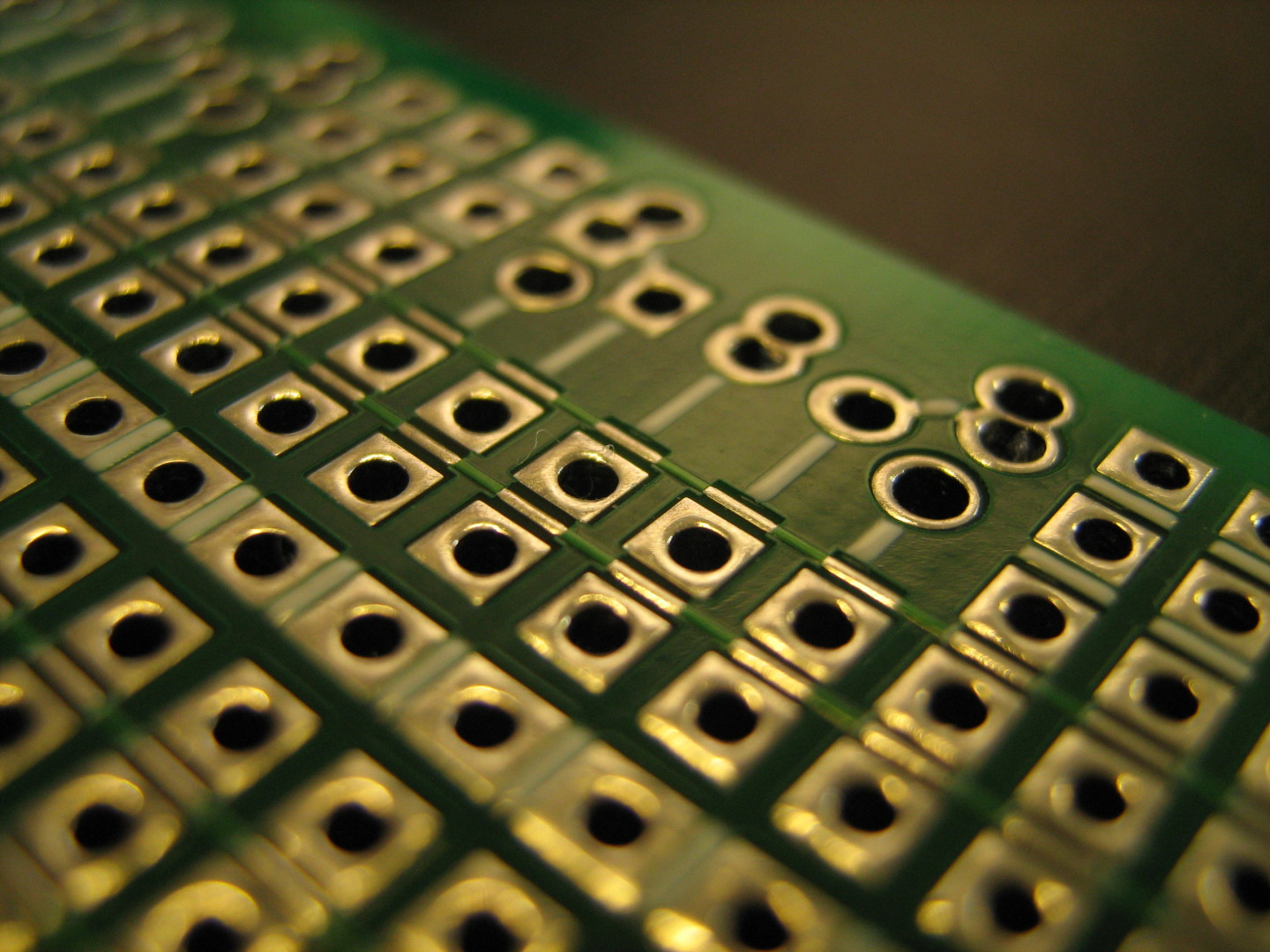
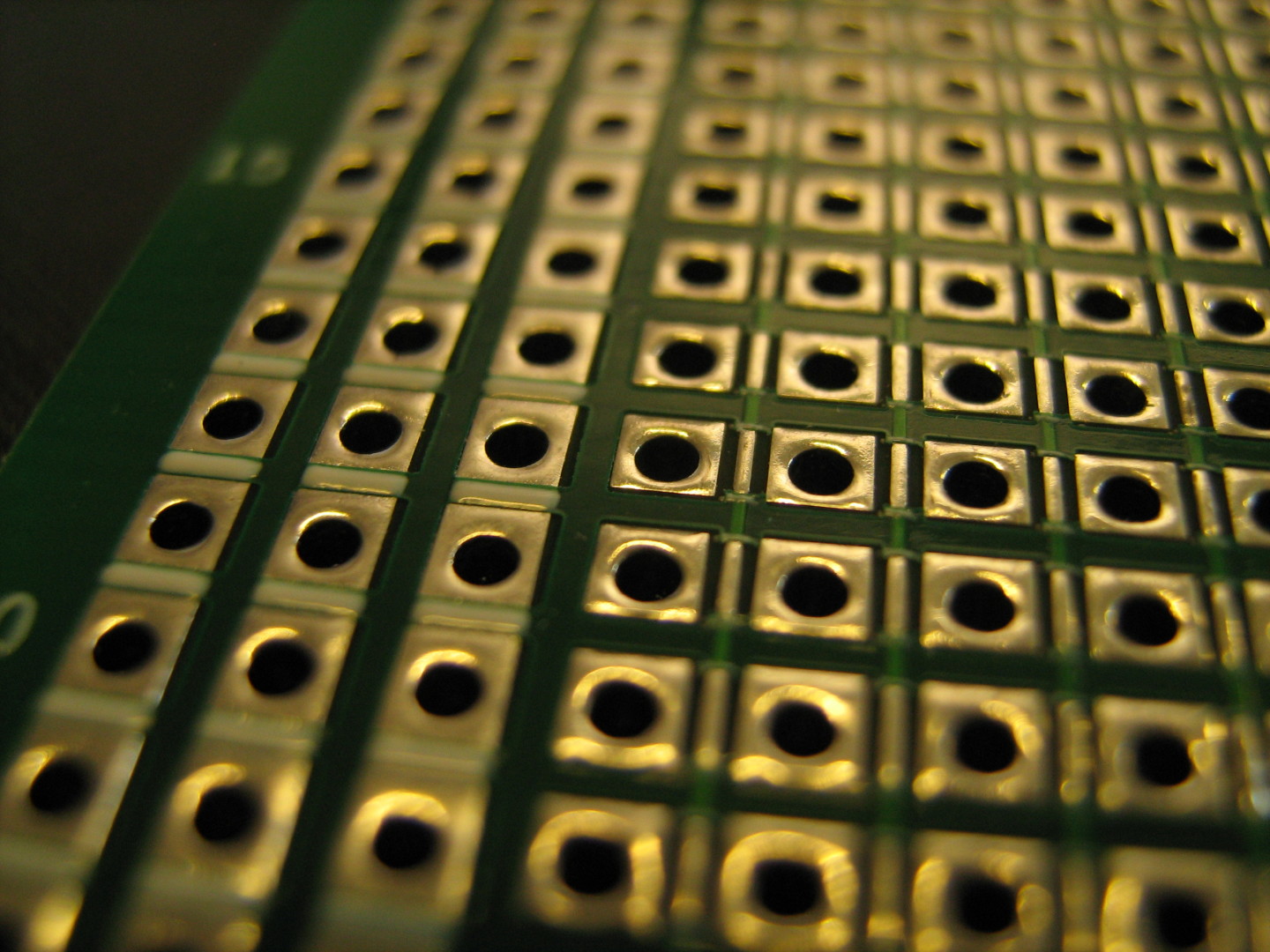
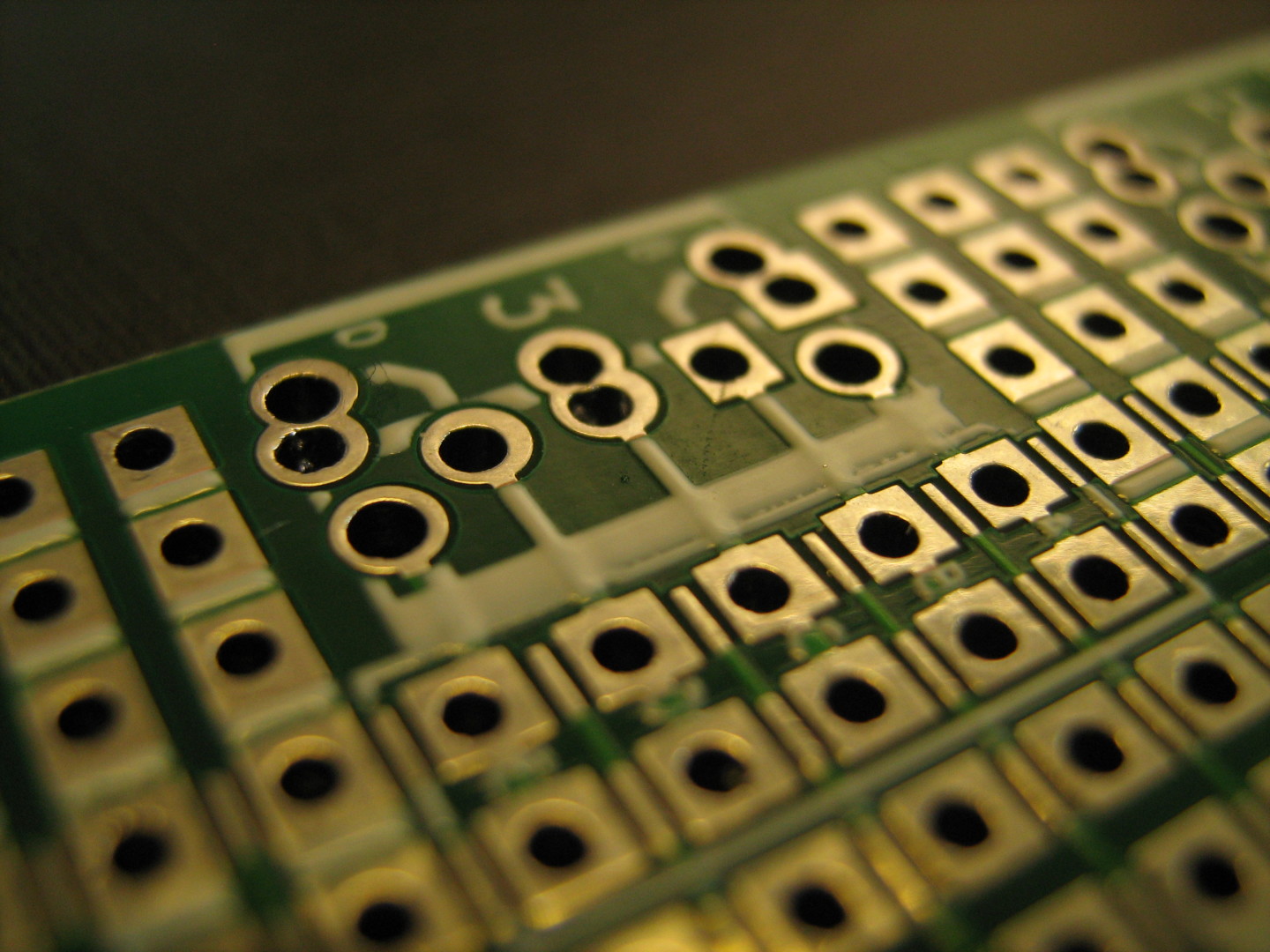
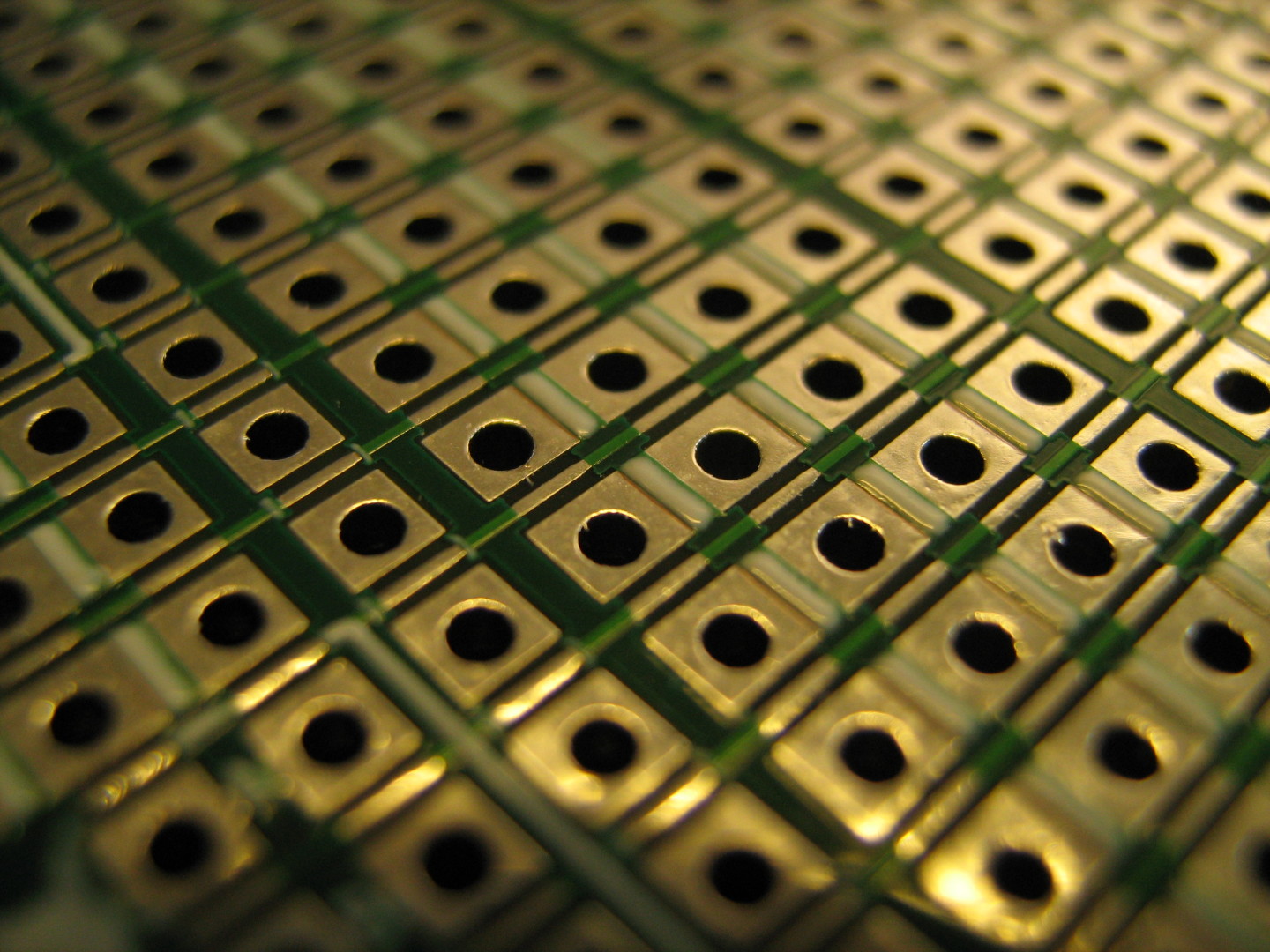
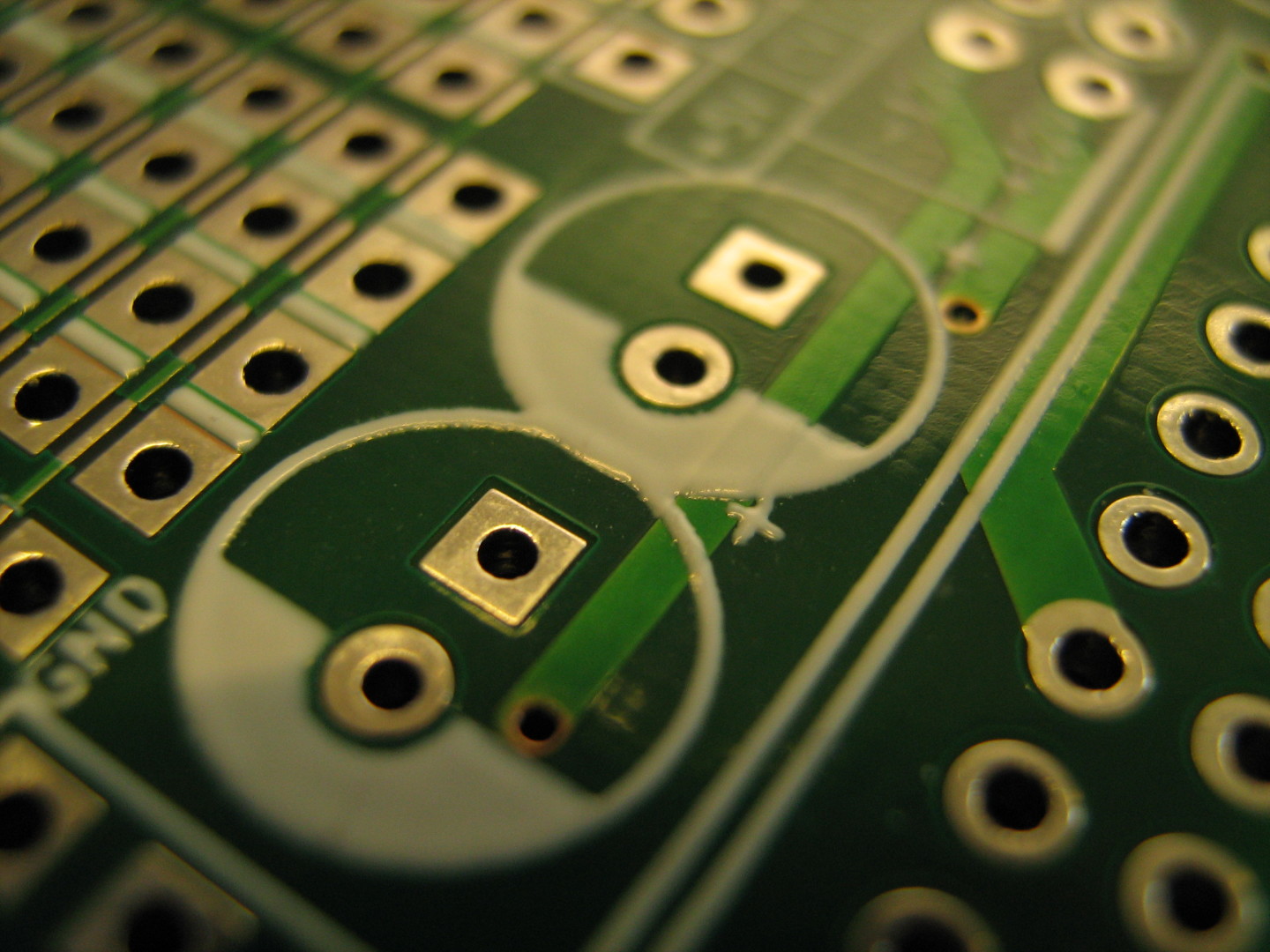
What part number/component values do you recommend for the filtering capacitors and protection diodes?
Any 1N400x Rectifier Diode is ok. Use 1µF 25V Aluminium Capacitors.
Take a look at this post
are the CL1382 jacks compatible with this awesome board?
or is there another 3.5mm mono jack that you recommend?
Well, the CL1382, with its solder lugs is more suited for wire connection. You could probably try something (the solder lugs will be aligned with the PCB holes), but you won’t be able to insert the lugs into the holes…
Which one of these will be suitable to work with the 5 hole panel? I believe one is a 5.5mm and the other a 6mm diameter for this hole.
https://www.digikey.com.au/en/products/detail/cliff-electronic-components-ltd/CL13845GA/13663633
https://www.digikey.com.au/en/products/detail/cliff-electronic-components-ltd/CL1384ASM/13663618
Hello,
The only difference I can see between these two models, based on their respective datasheet, apart from one being gold plated and the other one not, is the height, from the PCB, of the center of the front panel hole.
Now, 0.5mm isn’t a big deal. And, as a general advice, it’s always a good practice to solder the pins after tightening a component to its front panel. Definitely not the opposite, because it would create nasty strain on the solder joints.
This being said, the Cliff Jacks require a 8mm (M8) opening in the front panel.
The 5-hole Front panels are compatible, no worries.
What pots do you recommend for using with this strip board?
Any potentiometer with 2.54mm (“9mm potentiometer”) or 5.08mm (“16mm potentiometer”) pin-pitch is okay.
Of course, you need Right Angle (or “horizontal”) model, not “vertical”.
This model for example is perfect: https://www.thonk.co.uk/shop/alpha-9mm-pots-right-angle/
You can also find similar products at Tayda, Synthcube/Smallbearelec or Musikding.
https://synthcube.com/cart/synth-diy/parts/potentiometers/alpha-9mm-round-shaft-pc-mount-pots
https://www.taydaelectronics.com/potentiometer-variable-resistors/rotary-potentiometer/linear/tayda-100k-ohm-linear-taper-potentiometer-round-shaft-pcb-9mm.html
https://www.musikding.de/Alpha-Pots-9mm